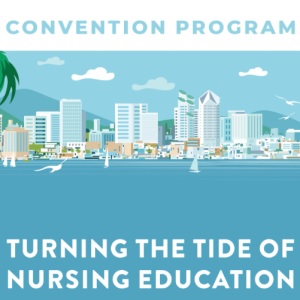Back
603 - Enhancing Nursing Faculty: Building the Foundation to Turn the Tide
Friday, November 17, 2023
10:20 AM – 11:10 AM PDT
Location: Bankers Hill
Earn: 1 CEU
.jpg)
Dareni N. Lowe, BSN, RN, BBA (she/her/hers)
Marketplace Manager, Sigma
Sigma Theta Tau International Honor Society of Nursing
Mooresville, North Carolina
Innovative solutions are needed to address the growing educational issues confronting nursing faculty. Fewer nursing faculty have formal training in education or nursing education. There needs to be more knowledge and skills related to teaching nursing students. Mapped to all major content areas for the Certified Nurse Educator (CNE®) credentialing examination and the QSEN graduate competencies, a six-course program was developed to allow nursing faculty to assess their knowledge and gain the necessary skills related to teaching nursing students.
The shortage of nurse faculty is impacting our overall nursing shortage. Despite this fact, very few post-academic educational programs currently help nurses adequately develop the knowledge and skills necessary to prepare nursing students for the real world of nursing.
Fewer nursing faculty have formal training in education or nursing education, and there needs to be more knowledge and skills related to teaching nursing students. AACN (2021) found that 80,407 qualified applicants were turned away from baccalaureate and graduate programs. The primary reasons were a need for more appropriately prepared nursing faculty and clinical education sites. Providing skills and knowledge to current and new faculty could assist in addressing the faculty shortage.
In addition to mastery of adult learning and educational theory, nursing faculty need comprehensive knowledge and skills to help their students succeed. Utilizing the Universal Design for Learning framework, an asynchronous learner-paced educational activity supports faculty review and attainment of essential competencies.
The shortage of nurse faculty is impacting our overall nursing shortage. Despite this fact, very few post-academic educational programs currently help nurses adequately develop the knowledge and skills necessary to prepare nursing students for the real world of nursing.
Fewer nursing faculty have formal training in education or nursing education, and there needs to be more knowledge and skills related to teaching nursing students. AACN (2021) found that 80,407 qualified applicants were turned away from baccalaureate and graduate programs. The primary reasons were a need for more appropriately prepared nursing faculty and clinical education sites. Providing skills and knowledge to current and new faculty could assist in addressing the faculty shortage.
In addition to mastery of adult learning and educational theory, nursing faculty need comprehensive knowledge and skills to help their students succeed. Utilizing the Universal Design for Learning framework, an asynchronous learner-paced educational activity supports faculty review and attainment of essential competencies.
Objectives:
- Describe strategies for assessing nursing students and facilitating learning.
- Discuss the role of the nurse educator in scholarship, leadership, and service
- Describe the nurse faculty’s role in self-improvement.

.jpg)
.jpg)
.png)
.jpg)
.png)
.png)
.png)
.jpg)
.jpg)
.jpg)
.jpg)
.png)
